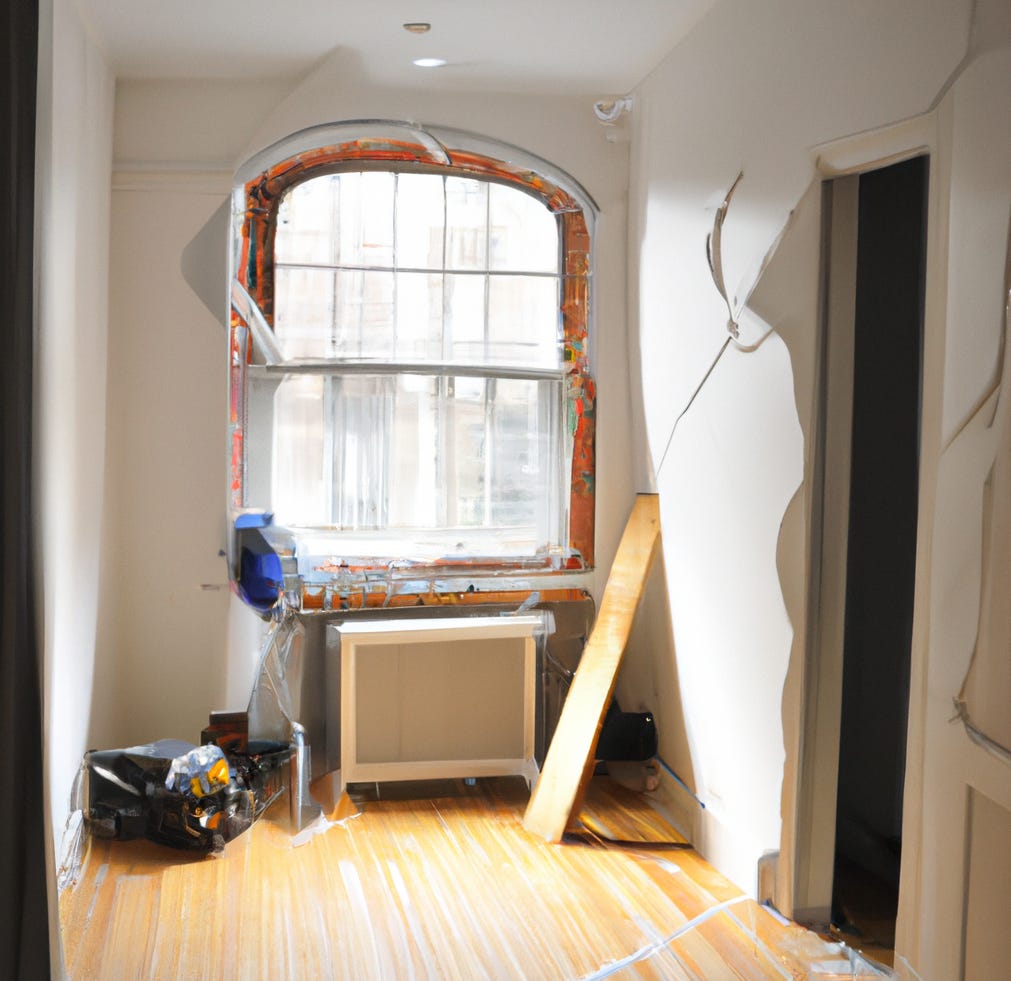When you need procurement and when you don't
At Rafaelles, our work style is really collaborative. There are multiple ways we try to engage with clients. First and foremost, we exchange information on Google Drive, so you can see what’s going on in real-time.
There is a long road from the general idea to the final result. And we — and our clients! — are very interested in the final result. The part between the final reveal and the concept is called the procurement or FF&E (Furniture, Fixtures, and Equipment) stage. It’s the part when you bring to life what you envision. And it’s the longest part.
It’s obvious when you need procurement for your project:
When you want your designer to take care of everything.
As soon as we collect all pieces, we schedule the delivery week and operate all installations ourselves. If it’s remodeling, we manage contractors and suppliers for you.
You just leave the keys, confirm the budgets, and then come home for the Big Reveal.
You can see all updates on the project on your phone, without the hassle, while we manage timelines and deal with contractors.
The price of this stage depends on the size and location of the project. Typically we calculate the price based on 10% of the overall project cost.
When you don’t need procurement:
You might not need procurement if you are ready to do it yourself. In this case, you want to find pieces of furniture on your own and are not ready to pay any extra.
Then you need a roadmap and the designer’s support on bumps in the road.
Here are the main pain points that you can face during the process:
Delays: These can occur for various reasons, such as supplier backlogs, shipping delays, or customs issues.
How to deal with it: make sure that you have proper customer service; best case scenario a manager that can help you out.
Quality issues: There is a risk that the materials and equipment arrive damaged.
How to deal with it: Before you buy, check the return policy.
Cost overruns: The cost of materials and equipment can change during the project, which can result in cost overruns that exceed the budget.
How to deal with it: Make a general spreadsheet with ALL elements involved, calculate the price, and keep 15% on top of the overall budget to deal with emergencies. Study the market for offers, and purchase all essential elements within 2 weeks [price tends to change from month to month with the general tendency of growing]. It’s better to time it also during big sales, and clearances at the end of every quarter. Store everything in a warehouse, or the space you don’t use during the remodeling stage. Organize the storage of materials in order to have them when you need them.
Contractual disputes: Disputes can arise between the parties involved in the procurement stage, such as between the designer, the contractor, and the suppliers. These disputes can be related to the delivery of goods, payment, or quality issues.
How to deal with it:
Respond to issues right away. Everything is solvable, and hesitation can convert an issue into a problem. Connect all players on one platform or spreadsheet that you can check on a daily basis and track the progress. Set up bullet points for every week, that everybody agrees with, and make sure they follow them. Read the contract…READ THE CONTRACT… READ IT!
Give your contractor the chance to do his work, and make sure he studies the project before he starts working on it, ask questions, and interview at least 3 potential candidates. If you don’t want to have a general contractor, follow the path of Cesar: divide and conquer, meaning divide your big pile of work into slices, and give it to different contractors. They may be easier to control, and in most cases less expensive, but require more work for you when it comes to management.
Regulations: It's important to ensure that all materials and equipment procured follow relevant regulations and standards.
How to deal with it: Again, make sure your contractor knows what he’s doing. Ask questions about regulations and standards BEFORE starting to work with anyone. Do your homework and research so that you would understand his answers before meeting with him.
Dependency on suppliers: The procurement stage often involves a high level of dependency on suppliers and their ability to deliver materials and equipment on time and to the required specifications.
How to deal with it: Have a place where you can store materials and furniture.
And the most important:
STAY CALM.
When you deal with multiple things, at some point it may be overwhelming. So give yourself time outside the big project you have.
Don’t let stress guide your decision-making process, as you’re going to regret that.
You are going to get through it. Just take it one step at a time.
We have a client who received the wrong floor mirror - twice! She was ready to give up and just leave it as it is. We convinced her to take a deep breath and return it, and now she’s in love with her space because everything in it inspires her.
So stay strong, stay calm, make a plan, and follow it.
Everything is going to be all right.
Love,
Rafaelles


